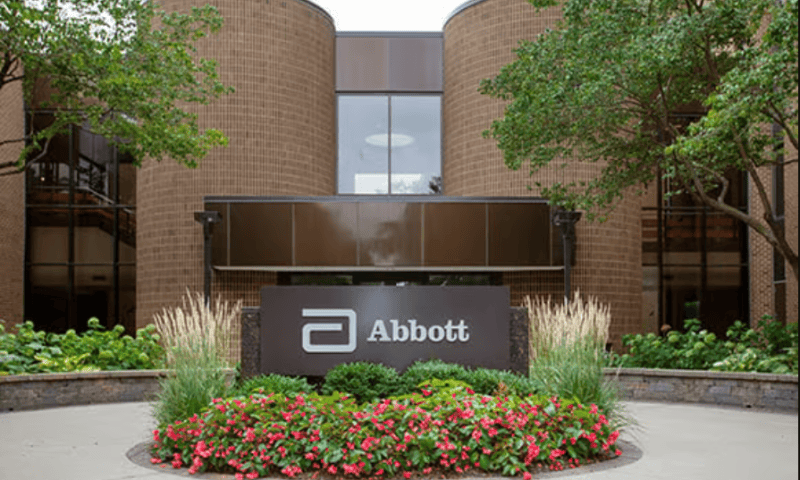Last quarter Abbott saw large gains in its medical device sales that helped push its revenues to just shy of $10 billion—exceeding the company’s expectations and leading it to nudge up its financial forecasts for the long remainder of the year.
“Organic sales growth, excluding COVID testing-related sales, was 10.8% in the quarter—which represents the fifth consecutive quarter of double-digit growth,” CEO Robert Ford said during Abbott’s earnings presentation. “The strong start to the year was driven by broad-based growth across the portfolio, including growth of 14% in medical devices and established pharmaceuticals.”
The company’s organic measurements of sales growth exclude international currency fluctuations as well as the impacts from its $890 million acquisition of the artery-clearing devicemaker Cardiovascular Systems, which it closed in late April 2023.
Still, Abbott’s medical device division’s sales grew by 14.2% on an unadjusted, reported basis—powered by double-digit growth across electrophysiology, neuromodulation and structural heart, areas that saw multiple recent product launches and new regulatory green lights.
Diabetes care wasn’t left behind, either. The company’s FreeStyle Libre continuous glucose monitoring system brought in $1.5 billion alone, 22.4% ahead of last year’s quarterly figures.
The company recently received a long-awaited U.S. approval for its TriClip implant for tricuspid valve regurgitation, as well as an FDA clearance expanding the reach of its handheld blood test for detecting traumatic brain injuries and concussions.
“Structural Heart is an area that we have invested in over the past years in order to create a diversified portfolio that can sustainably deliver double-digit growth,” Ford said on a call with investors. “In the past, we relied almost exclusively on MitraClip—but today the portfolio and growth are more balanced, and reflect the increasing contributions from newer products like Navitor, Amulet and TriClip.”
Meanwhile, the company’s Aveir leadless pacemaker system has “rapidly captured market share” in the single-chamber segment, according to Ford, and it’s now making in-roads in dual-chamber pacing following its FDA approval last summer. “This revolutionary technology is helping to deliver growth rates in our rhythm management business that significantly exceed the overall growth in this market,” he said.
Elsewhere, diagnostic tests brought in $2.21 billion in worldwide sales, 17.6% below the same quarter last year, which had seen much larger gains in COVID-19 testing revenue. According to Abbott, the first quarter of 2023 brought in $730 million from coronavirus tests, compared to the most recent quarter’s $204 million. When excluding those figures and focusing on the company’s base business, diagnostics grew by 2.7%.
Nutrition sales added another $2.07 billion, for a 5.1% increase. The company recently confirmed that it will lay off nearly 200 employees next month with the closure of a Bay Area nutrition facility, following a WARN filing with the state of California, according to reports from The Mercury News and the San Francisco Chronicle.
Meanwhile, the established pharmaceuticals division—which maintains a portfolio of various branded generic drugs sold outside the U.S., from its headquarters in Switzerland—reported 3.1% in unadjusted growth, but 13.7% when accounting for currency changes, with a $1.22 billion haul.
All told, the company’s first-quarter sales amounted to $9.964 billion.
Those numbers have pushed the company to tighten its financial guidance and nudge up the midpoint of the range, though while maintaining the ceiling. Abbott now projects full-year diluted earnings-per-share of $3.25 to $3.40, versus its previous estimates of $3.20 to $3.40.
“Last year we were the fastest growing medtech company—and at least from what I’ve seen, from our guidance and the other guidances in the market, that’s what it seems to be again this year,” Ford said on the call. “So that together with a pipeline that’s been contributing to an accelerated level, plus great new product approvals—I put all that together and I just feel that this type of performance gives us confidence for the remainder of the year.”
“And I believe that, going into the second quarter, there’s probably more opportunities than risks as we move forward,” he added. “So that’s the framework behind raising our guidance in the first quarter, which is something that we usually don’t do. It’s just great performance and great momentum.”

